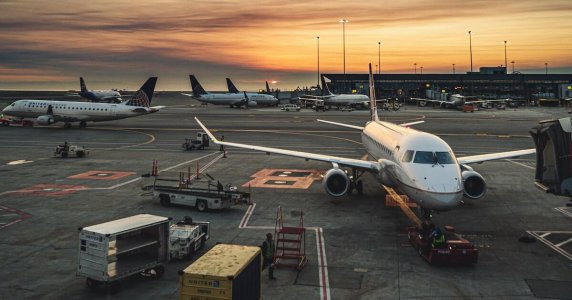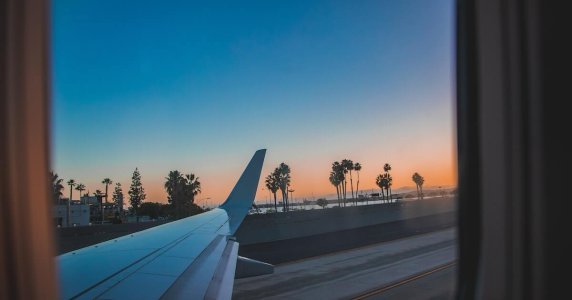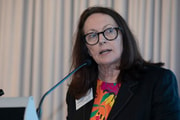Airline seat policy sparks controversy: Are plus-size travellers facing discrimination?
- Replies 32
We here at the SDC know that travelling is only getting harder with the rise in ticket costs, security procedures, and baggage limitations.
And while we try our hardest to make travel as convenient as it can be, certain travellers are facing more issues and, as a result, feel discriminated against.
Flying used to be a luxury reserved for a select few. But now, it's a necessity for many, allowing them to explore the world easily and efficiently, either for work or for pleasure.
But with this accessibility comes questions about how airlines can cater to passengers with different needs and ensure everyone has a comfortable experience.
For those who are plus-sized, airline seat policies have become a controversial topic. Jaelynn Chaney, a plus-size traveller and social media content creator, believes that airlines are treating larger passengers unfairly by requiring them to pay for extra seats in order to accommodate their size.
Jaelynn petitioned for the Federal Aviation Administration (FAA) to enforce changes to airline policies overseas, including providing plus-sized travellers with extra free seats as necessary.
So far, her Change.org petition has gathered over 17,000 signatures.
According to Chaney, a size 6XL herself, these policies are discriminatory against plus-sized passengers.
‘As plus-size travellers, my partner and I have unfortunately experienced discrimination and discomfort while flying,’ Jaelynn wrote in her petition.
As she points out, ‘People with smaller bodies get to pay one fare to get to their destination. And we have to pay two fares, even though we're getting the same experience. If anything, our experiences are a little bit more challenging.’
This sentiment is echoed by Gabor Lukacs, the founder of Air Passenger Rights. In a recent interview, Lukacs suggests the issue could be considered a matter of human rights for passengers of a certain weight.
He argues that ‘through that lens of human rights, I don't see any justification for charging these people a double fare’.
Lukacs also points out that many factors contribute to a person's size, including genetics and health conditions. He also believes that there is a ‘lot of negative attention and prejudice against plus-sized people’, which impacts the issue.
As he puts it, ‘It's not as if someone is getting up in the morning and making a decision that they're going to be a large person.’ Further adding that ‘being a large-size person is not a choice, as many people mistakenly believe’.
Lukacs also explained that ‘immutable characteristics’ that are being used to assess additional fees for passengers is a ‘slippery slope’ for airlines.
Airline policies concerning larger passengers remain a contentious issue, but there are a few potential solutions being discussed.
Some suggest that airlines themselves should bear the financial burden of providing extra accommodations, while others argue that the costs could be subsidised by the government. After all, shouldn't accessible and equitable transportation be available to everyone, regardless of size?
At the very least, plus-size passengers like Jaelynn Chaney hope that the FAA and similar international organisations will standardise policies in a way that benefits plus-sized travellers and creates a more accessible, inclusive experience.
She said: ‘The government may have a role to play in funding or incentivising these policies, as part of its responsibility to promote accessible and equitable transportation for all citizens.’
As the conversation around airline seat policies continues, we will stay tuned for the latest developments.
 We want to hear from our wonderful members! Do you think the airlines should offer extra free seats to obese or overweight passengers? Of course, this may have a knock-on effect on the price of fares for everyone else – would you be willing to pay a little extra as a result of this policy? Tell us what you think in the comments below!
We want to hear from our wonderful members! Do you think the airlines should offer extra free seats to obese or overweight passengers? Of course, this may have a knock-on effect on the price of fares for everyone else – would you be willing to pay a little extra as a result of this policy? Tell us what you think in the comments below!
And while we try our hardest to make travel as convenient as it can be, certain travellers are facing more issues and, as a result, feel discriminated against.
Flying used to be a luxury reserved for a select few. But now, it's a necessity for many, allowing them to explore the world easily and efficiently, either for work or for pleasure.
But with this accessibility comes questions about how airlines can cater to passengers with different needs and ensure everyone has a comfortable experience.
For those who are plus-sized, airline seat policies have become a controversial topic. Jaelynn Chaney, a plus-size traveller and social media content creator, believes that airlines are treating larger passengers unfairly by requiring them to pay for extra seats in order to accommodate their size.
Jaelynn petitioned for the Federal Aviation Administration (FAA) to enforce changes to airline policies overseas, including providing plus-sized travellers with extra free seats as necessary.
So far, her Change.org petition has gathered over 17,000 signatures.
According to Chaney, a size 6XL herself, these policies are discriminatory against plus-sized passengers.
‘As plus-size travellers, my partner and I have unfortunately experienced discrimination and discomfort while flying,’ Jaelynn wrote in her petition.
As she points out, ‘People with smaller bodies get to pay one fare to get to their destination. And we have to pay two fares, even though we're getting the same experience. If anything, our experiences are a little bit more challenging.’
This sentiment is echoed by Gabor Lukacs, the founder of Air Passenger Rights. In a recent interview, Lukacs suggests the issue could be considered a matter of human rights for passengers of a certain weight.
He argues that ‘through that lens of human rights, I don't see any justification for charging these people a double fare’.
Lukacs also points out that many factors contribute to a person's size, including genetics and health conditions. He also believes that there is a ‘lot of negative attention and prejudice against plus-sized people’, which impacts the issue.
As he puts it, ‘It's not as if someone is getting up in the morning and making a decision that they're going to be a large person.’ Further adding that ‘being a large-size person is not a choice, as many people mistakenly believe’.
Lukacs also explained that ‘immutable characteristics’ that are being used to assess additional fees for passengers is a ‘slippery slope’ for airlines.
Airline policies concerning larger passengers remain a contentious issue, but there are a few potential solutions being discussed.
Some suggest that airlines themselves should bear the financial burden of providing extra accommodations, while others argue that the costs could be subsidised by the government. After all, shouldn't accessible and equitable transportation be available to everyone, regardless of size?
At the very least, plus-size passengers like Jaelynn Chaney hope that the FAA and similar international organisations will standardise policies in a way that benefits plus-sized travellers and creates a more accessible, inclusive experience.
She said: ‘The government may have a role to play in funding or incentivising these policies, as part of its responsibility to promote accessible and equitable transportation for all citizens.’
As the conversation around airline seat policies continues, we will stay tuned for the latest developments.
Key Takeaways
- Plus-size traveller and lifestyle content creator Jaelynn Chaney believes airlines should give overweight passengers extra seats for free, claiming current policies are discriminatory.
- Chaney's Change.org petition demanding changes benefiting obese and overweight flyers has received 17,000 signatures.
- Air Passenger Rights founder Gabor Lukacs agrees with Chaney, stating it is a matter of human rights for passengers of a certain weight.
- Chaney hopes for standardised policies and a more welcoming and inclusive travel experience for plus-size passengers.









